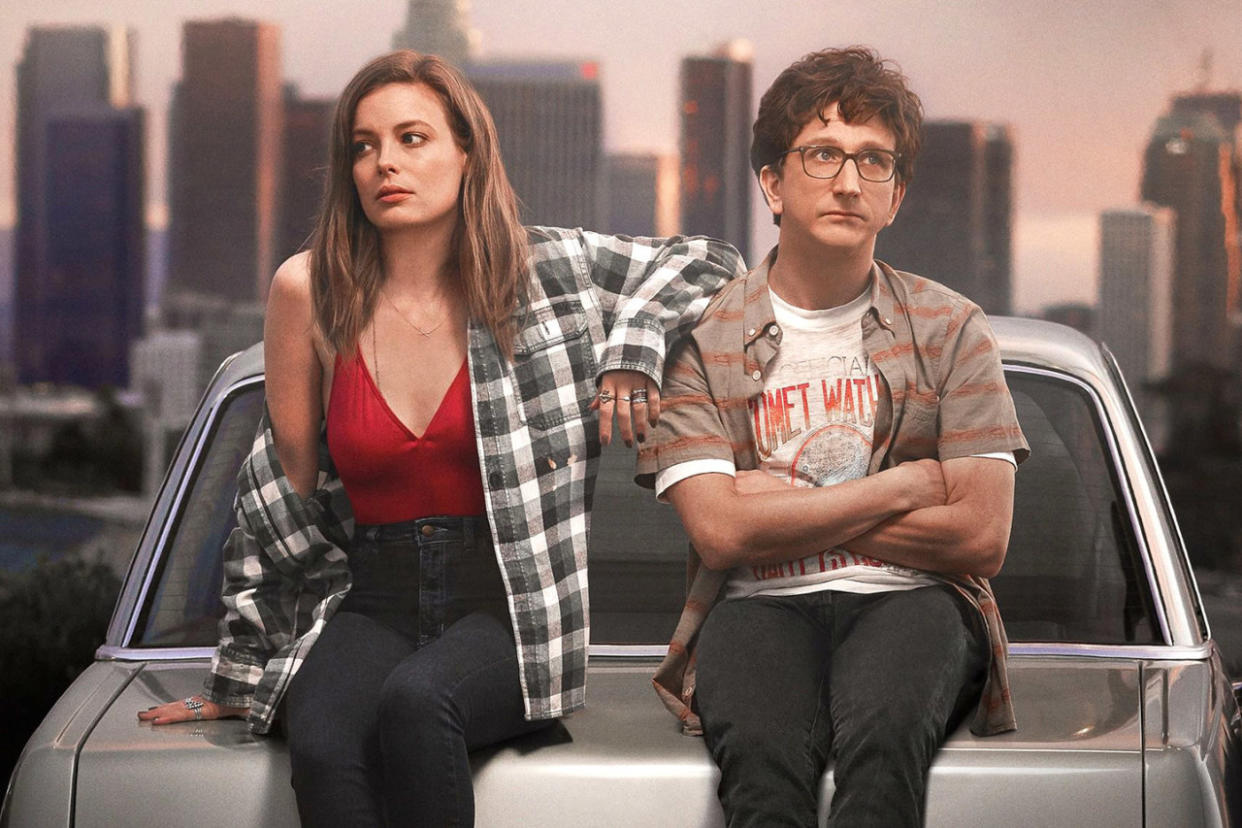The Apatow Effect: How do these imperfect rom-coms impact us?

Courtesy Netflix
This week, Netflix premiered “Love,” the latest series by Judd Apatow that follows the story of Mickey (Gillian Jacobs) and Gus (Paul Rust), a couple who are as different as they are invested in each other (or, invested in the idea of being with each other). And love is not a topic Apatow has ever shied away from.
From “Freaks and Geeks” to “Knocked Up” to “Girls” (of which he’s the producer), the Apatow Effect™ has seen a unique and oft-realistic interpretation of love. Like most of us, characters like Lindsay Weir (played by Linda Cardellini) and “Funny People”’s Laura (Leslie Mann) find themselves enamoured with who they think a person is, as opposed to who those people really are.
Characters like Debbie (Mann) and Pete (Paul Rudd) use two movies (”Knocked Up” and “This Is 40″) to negotiate what it means to commit long term to only one partner, as well as to the compromises that tend come along with it. And “Girls,” while not written by Apatow, explores the flaws in people that make relationships upsetting and complicated and even doomed. Human relationships are hard, and they are messy and they can ruin you. Or, that’s what we’ve taken away from the work of Judd Apatow.
But what effect has that had on the rest of us? As a generation as taken by talking about TV and movies as we are with watching them, series like “Love” have become more than just entertainment – they’ve become a touchstone. Which, if you’re into old-school rom-coms, might seem a bit tragic. Where romantic comedies of the ‘90s and earlier were rooted in the notion of good people overcoming a single conflict to end up together, Apatow’s work – whether written or produced – see flawed, problematic and even dislikable people trudge through the endless realities of 20- and 30-something relationships, with happiness (in the rom-com sense) not necessarily guaranteed.

Case in point: “Trainwreck” may feature a romantic storyline between Amy Schumer and Bill Hader’s characters, but it’s Schumer falling in love with herself (after acknowledging her own self-destructive tendencies) that truly wins our hearts. And the same pattern is seen in “Bridesmaids” – while directed by Paul Feig, Apatow’s influence (since he produced) can still be seen in the way Annie (Kristen Wiig) hits bottom before opening herself up to happiness – both in terms of her friendships and her romantic life. But it’s still not perfect: we don’t know if she and Chris O’Dowd’s characters stay together forever. We know her best friend (Maya Rudolph) leaves to start a life in Chicago. We know Annie has a long way to go (financially) before she can strike back out on her own. But that’s the way life works: nothing is ever tied up in a neat little package.
That’s an important message to send. While traditional romantic comedies have an important place in our cultural landscape (and if you ever try to take “When Harry Met Sally Away” from me, I will lose it), they send the message that every conflict has an ending, and that flaws disappear provided they’re over-romanticized. And in truth, life is much harder than that. Relationships are much harder than that. Couples break up, marriages end, or the opposite – other times, odds are overcome to lead to a happy, healthy and wonderful partnership.
But it’s important that all possible outcomes are explored. Life isn’t always finding out Tom Hanks is who you’ve been talking to on the Internet. So I’m excited about “Love.” Not only so I can see Gillian Jacobs in a role I think she’ll do brilliantly in (because if you don’t think Jacobs rules at life, you have obviously never seen “Community” or listened to “Comedy Bang! Bang!” or lived, thanks), but because we need more wonderful, complex, confused humans like Lindsay Weir on TV. Especially set in LA in 2016.

